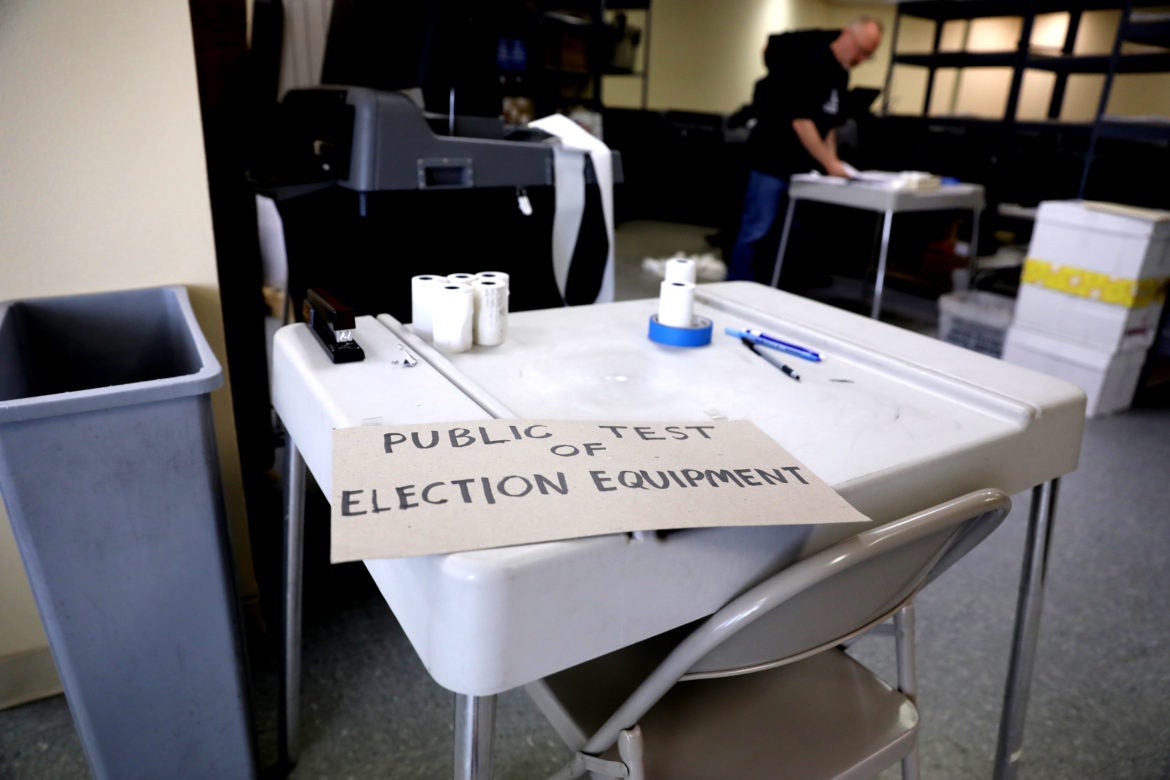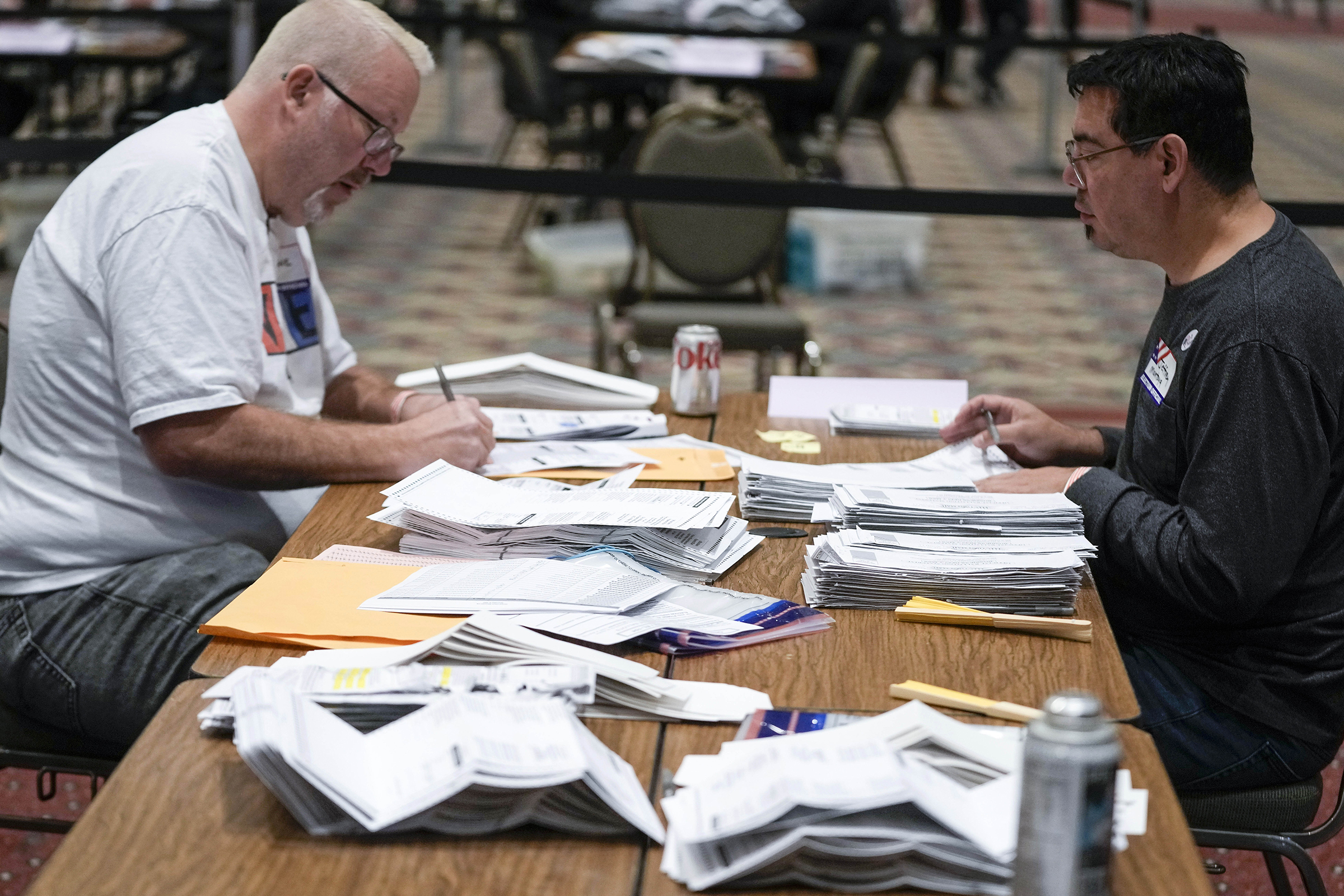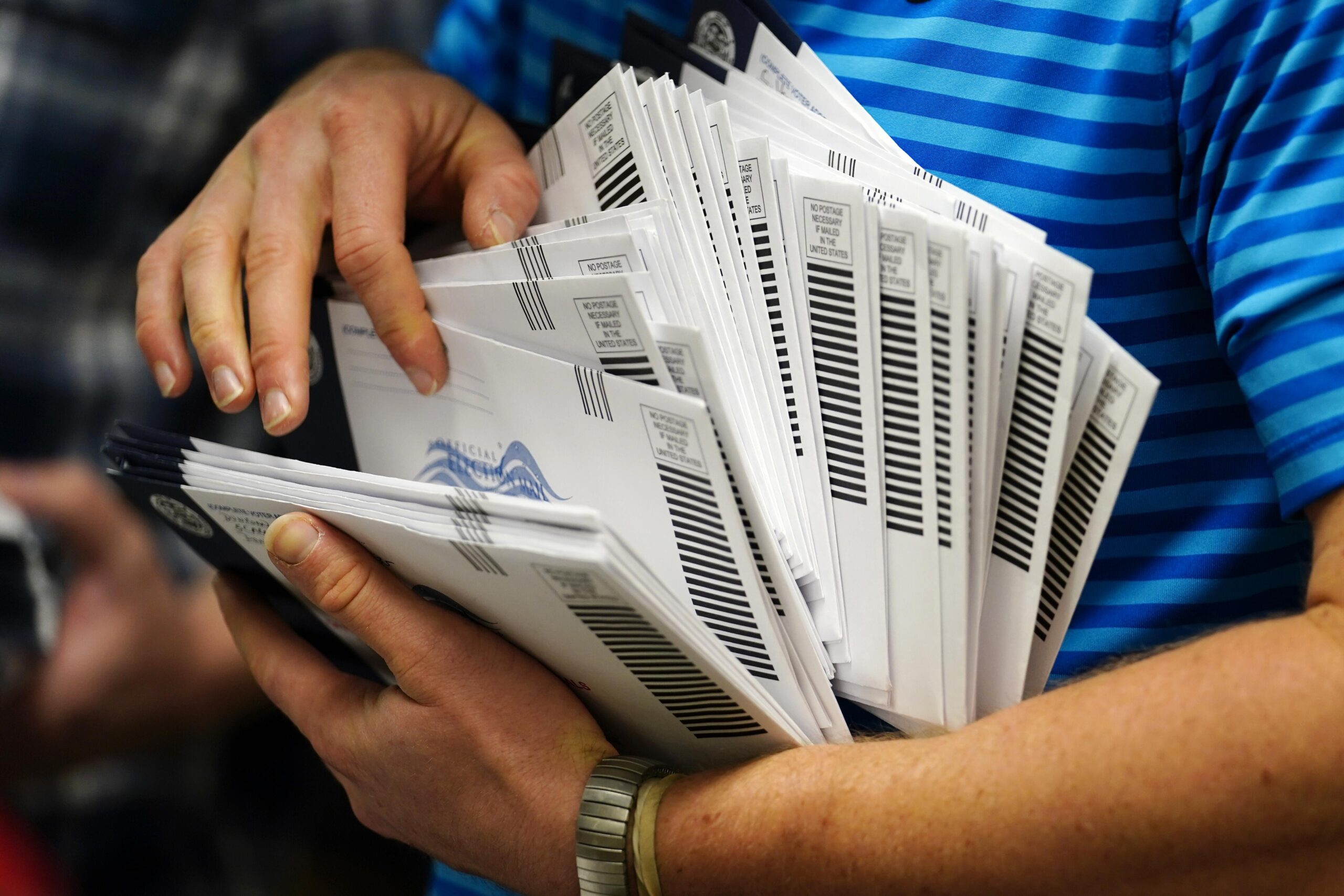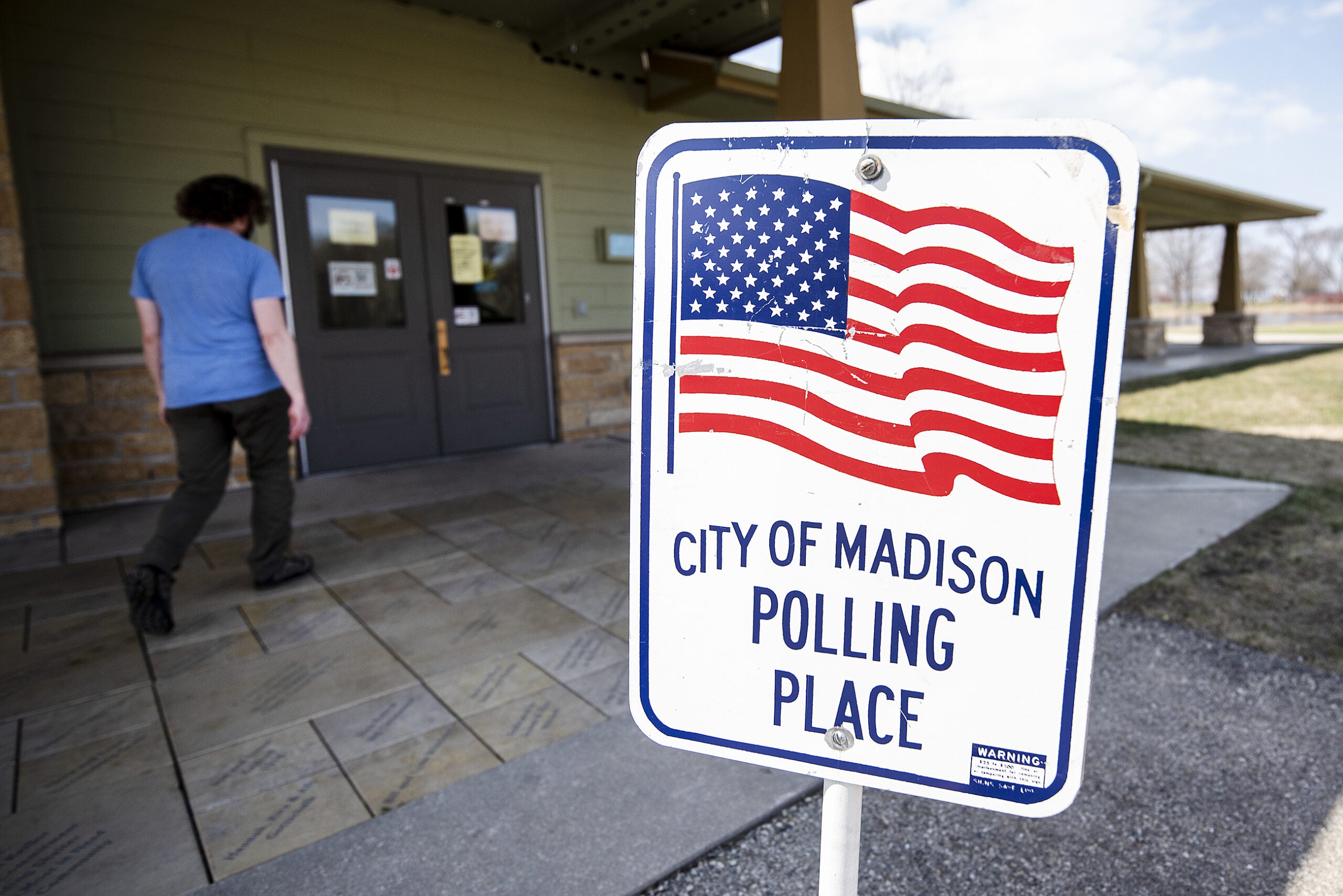On Tuesday, all eyes will be on swing states like Wisconsin, where unofficial election results reveal the winner of this year’s presidential campaign.
But anxious voters with early bedtimes shouldn’t expect to know which candidate the battleground Badger State picked before they hit the hay.
That’s because, even though the polls close at 8 p.m. on Tuesday, full results aren’t expected from Milwaukee until after midnight, according to the elections chief there — and Wisconsin’s largest city, a Democratic stronghold, can tip the ultimate outcome in a state where presidential races have been decided by less than a percentage point.
News with a little more humanity
WPR’s “Wisconsin Today” newsletter keeps you connected to the state you love without feeling overwhelmed. No paywall. No agenda. No corporate filter.
“We are the largest city in the state of Wisconsin,” said Paulina Gutiérrez, executive director of the Milwaukee Election Commission. “We follow the same laws that everyone else follows here in the state of Wisconsin. We just have a lot more to do.”
Milwaukee is one of 42 municipalities in Wisconsin authorized to use a central count system, according to the Wisconsin Elections Commission. These are centralized locations where all absentee ballots are delivered to be counted. In other communities, these ballots are counted at individual polling locations.
Under state law, Wisconsin does not allow any early ballots to be processed — or even opened or sorted — before the polls open on Election Day itself. Republicans in the state Senate killed a bipartisan push to change that law in February.
Processing those ballots takes several steps. The voter information on envelopes must be verified and assigned a number. The ballot must be removed and separated, to maintain anonymity. Then it must be unfolded and fed through a tabulator.
“When you’re processing absentee ballots, is not as simple as sitting there with an envelope opener, taking a ballot out and sticking it into a machine,” said Claire Woodall, who formerly led the Milwaukee Election Commission. “There is a meticulous set of processes and procedures that they follow.”
In areas that have a central count as well as a larger population, the results take longer to sort through as election workers process a large number of early votes.
Milwaukee is anticipating processing at least 80,000 absentee ballots on Election Day, alongside the polling place ballots that come in. As of Oct. 1, there were almost 285,000 registered voters in Milwaukee. Wisconsin also offers same-day voter registration, so the Election Day total may be higher still.
“We’re very efficient, and have become more efficient at processing our ballots,” Gutiérrez said. “But what I always like to remind the public is that we also have a very extensive and formal exporting process, and that, in and of itself, takes several hours.”
Gutiérrez estimated that complete city results would not be made known until after midnight.
That exporting process also involves checks and balances, with the data sealed, carried by a bipartisan team of election staff and escorted by police to the county.
In 2020, Milwaukee’s results came out late in the night — as local officials, including Woodall, said in advance they would. But those numbers tipped the state results, from what had looked like a victory for former President Donald Trump to a narrow win for President Joe Biden.
Trump and his allies used that change to spread conspiracy theories about a nefarious late-night “ballot dump.” Numerous audits and court challenges of the results have affirmed Wisconsin’s outcome in that election.
That election had an unusually high number of absentee ballots because of the COVID-19 pandemic. But Milwaukee’s results came out after midnight in 2018 and 2022, too, said Barry Burden, who directs the Elections Research Center at the University of Wisconsin-Madison.
“So it’s not just tied to COVID — it’s really the process that’s used in our state and in Milwaukee causes that to happen,” he said. “There’s nothing illegal about it. There’s nothing unexpected about it. Actually, we all know this is going to happen, but nonetheless, there are people who are skeptical about it, and in some cases, will intentionally spread disinformation about it, but it’s just part of the process.”
Last year, the Assembly passed a bipartisan bill that would have allowed communities to canvass absentee ballots early, but still not begin counting them until Election Day. The idea was to give a little more time for the processing tasks that delay the overall count. But that proposal ultimately died in the state Senate. Senate Majority Leader Devin LeMahieu, R-Oostburg, said some Senate Republicans objected to the bill.
As of Thursday, about 1.34 million absentee ballots had been cast across the state, according to the Wisconsin Elections Commission.
Editor’s note: This story was updated to reflect the Thursday total of absentee ballots and the number of central count municipalities.
Wisconsin Public Radio, © Copyright 2025, Board of Regents of the University of Wisconsin System and Wisconsin Educational Communications Board.







